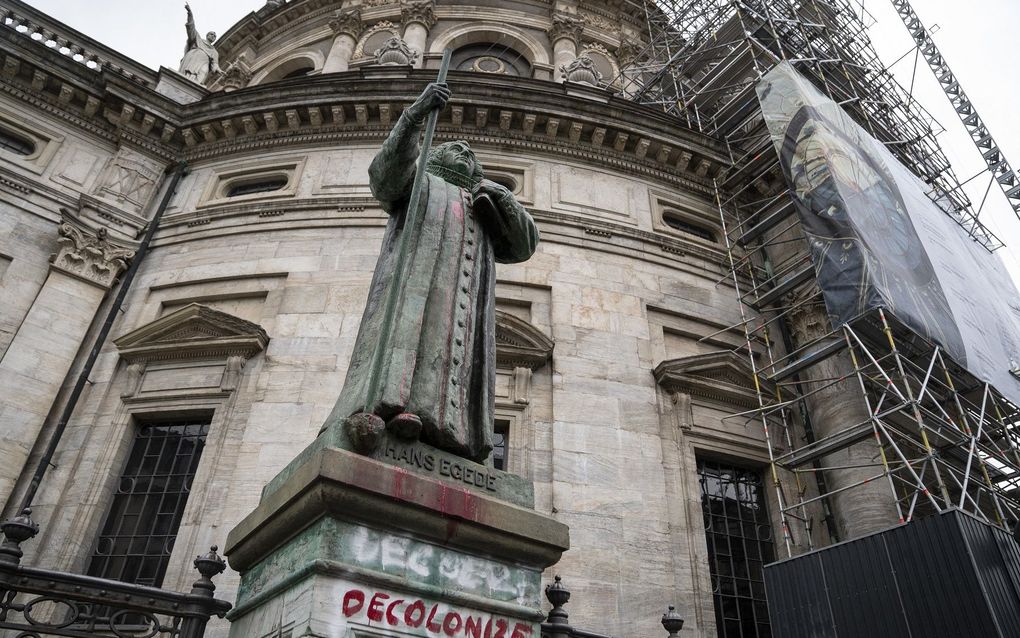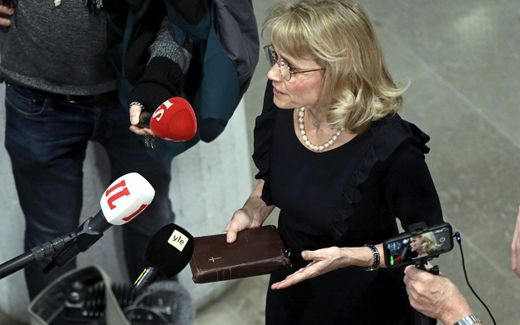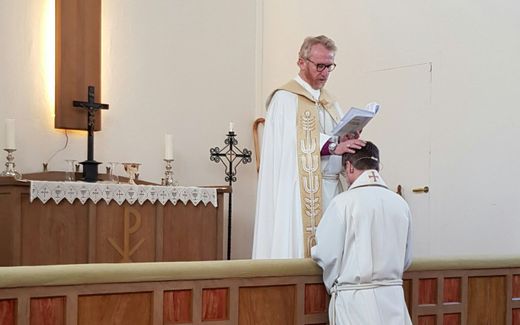Danes: Religion is the path to conflict

A statue of the Danish-Norwegian Lutheran missionary Hans Egede exposed outside the Frederik's Church, vandalized during the night in Copenhagen, Denmark. Hans Egede was a missionary in Greenland in the 18th century and a colonizer among the local population. Photo AFP, Liselotte Sabroe
Northern Europe
About 75 per cent of the Danish population believes that religion is at the base of many conflicts. They think that religion creates more conflict than peace.
One in four Danes asserted that religion is the path to conflict. They did so to a question of a survey conducted on behalf of Kristeligt Dagblad. Less than 10 per cent of 1000 respondents believed religion leads to peace.
Trine Anker, researcher and professor of religious studies at MF University College, explains the high numbers by pointing to the secularisation of Denmark. "People distrust religion and often combine their distrust of immigration by scepticism about religion", she says to Vart Land.
Mogens S. Mogensen, historian and author, agrees with Anker. He says to Kristeligt Dagblad that the survey results express fear and a lack of knowledge when many Danes link religion to conflict. "As religion becomes less prominent in society, we know less about what faith and religion are about", he argues. "When you know less, you become more easily afraid of the unknown."
However, he adds that seeing religion only as dangerous and problematic is risky, arguing that Christianity has shaped the organisation of Danish society and its cohesiveness. He thinks many respondents referred to Islam when answering whether religion leads to peace or conflict. Mogensen acknowledges that Islam is at the root of some conflicts but that it is historically wrong to blame religion for significant conflicts. "Political ideologies are far more conflict-creating; just think of Stalin, Hitler and Pol Pot."
Religion as the path to peace
Sociologist of Religion Brian Arly Jacobsen even thinks that most Western Europeans share this perception of religion. "I think the answer agrees very well with a widespread perception in Western Europe about the conflict potential of religion", he says. "Some people even claim that the world would be better without religion."
He disagrees with that position. "It fits into many people's notions that different religions are fighting each other, such as Jews and Muslims in Israel. It's just not a true picture."
Instead, Jacobsen argues that religion can actually be the way to peace. Therefore, he pleads for more education about religion in schools. "Peace processes are rarely included in the curriculum, but it would be obvious to teach students how they have historically worked to create a lasting peace. And here, introducing human rights, including religious freedom, is a crucial milestone."
Related Articles







